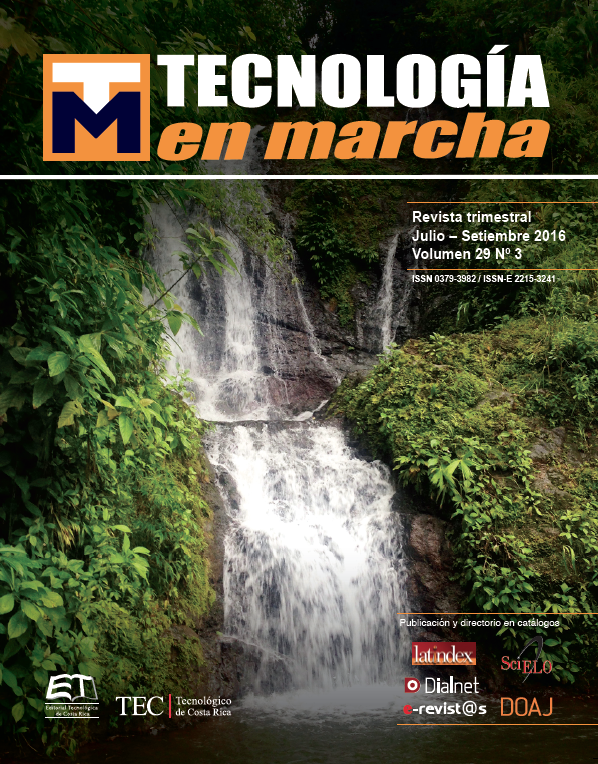Updating the water quality criteria for well and spring water used for potabilization in Costa Rica
Main Article Content
Abstract
Objective: To update the microbiological and physical-chemical criteria for well and spring water used for potabilization, through analysis of data collected from 965 wells and 3.292 springs during the period 1996-2010.
Methodology: In order to fulfill the study objective the following phases were performed:
-Inventory of the diverse springs used for potabilization according to historical data available at the National Water Laboratory.
-In the case of microbiological criteria, averages were determined separately for springs and well water for the parameters of fecal coliforms (CF/100mL) and Escherichia coli (E. coli).
-With the average data for CF/100 mL and E. coli/100 mL, statistical analyses were performed for well and springs and the average, mode, median, standard deviation (SD),
minima, maxima and range were determined; in addition the percentile distribution for each indicator was determined.
-For physical-chemical quality, we recurred to expert criteria gathered through work with water sources in the country and the scientific updates in the 4th Edition of the WHO Drinking Water Quality Guidelines (2011).
Results:The data and statistical analysis show the convenience of having separate microbiological criteria for well-water and springs. However, regarding physical-chemical aspects, 11 basic parameters were defined (organoleptic, hardness, nitrates, heavy metals, chlorides, and pesticides.
Conclusions: This study allowed broadening the criteria for well-water and springs used for potabilization, through analysis of current conditions of groundwater in the country.
Article Details
Los autores conservan los derechos de autor y ceden a la revista el derecho de la primera publicación y pueda editarlo, reproducirlo, distribuirlo, exhibirlo y comunicarlo en el país y en el extranjero mediante medios impresos y electrónicos. Asimismo, asumen el compromiso sobre cualquier litigio o reclamación relacionada con derechos de propiedad intelectual, exonerando de responsabilidad a la Editorial Tecnológica de Costa Rica. Además, se establece que los autores pueden realizar otros acuerdos contractuales independientes y adicionales para la distribución no exclusiva de la versión del artículo publicado en esta revista (p. ej., incluirlo en un repositorio institucional o publicarlo en un libro) siempre que indiquen claramente que el trabajo se publicó por primera vez en esta revista.

